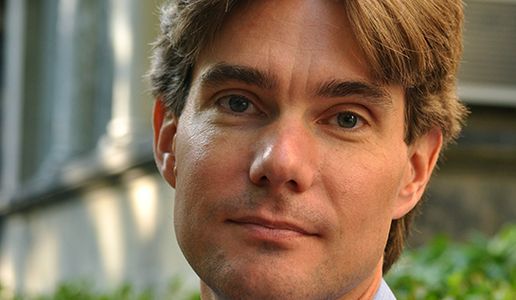Governing Arctic Change: Selin Contributes Chapter
Henrik Selin, Director of Curricular Innovation and Initiatives and Associate Professor of International Relations at the Frederick S. Pardee School of Global Studies at Boston University, contributed a chapter to the book Governing Arctic Change: Global Perspectives, published in January 2017.
The book offers a theory-driven and empirically sound analysis of Arctic global networks, discourses and policies while examining all participating actors in Arctic governance, including non-Arctic states, international organizations and indigenous groups. Selin’s chapter is entitled “Global Environmental Governance and Treaty-Making: The Arctic’s Fragmented Voice.”
From the text of the chapter:
The Arctic has witnessed a considerable increase in cooperation over the past three decades (Young 1998; Byers 2013). Since the early 1990s, environmental issues with important human health and developmental consequences have entered the pantheon of high-level circumpolar politics and policy-making. Alongside these regional actions, the Arctic attracts attention in many forums outside the region. As a result of the Arctic being a ‘globally embedded space’ (see Chap. 1 by Keil and Knecht, this volume), circumpolar environmental issues and actors are part of debates and decision-making in multiple arenas of global multilevel governance.
Analysts and policy-makers point to the importance of the Arctic as the metaphorical canary in the coalmine of global climate change and other environmental trends (Nilsson 2009; Duyck 2012). Others invoke the idea of an ‘Arctic Messenger’ issuing warnings of human folly and hubris of ignoring evidence and consequences of Arctic environmental change (Stone 2015). Arctic countries and non-state groups invoke the fact that the Arctic is a highly ecologically sensitive place where signs of important changes can be detected early to expand regional cooperation to reduce environmental and human health risks from hazardous substances and climate change. In parallel, they seek to promote an Arctic agenda in international forums. However, the success of these external efforts has been mixed at best.
Find out more about Governing Arctic Change: Global Perspectives here.
Henrik Selin conducts research and teaches classes on global and regional politics and policy making on environment and sustainable development. His most recent book is EU and Environmental Governance, by Routledge Press, and is also the author of Global Governance of Hazardous Chemicals: Challenges of Multilevel Management by MIT Press. Learn more about him here.
